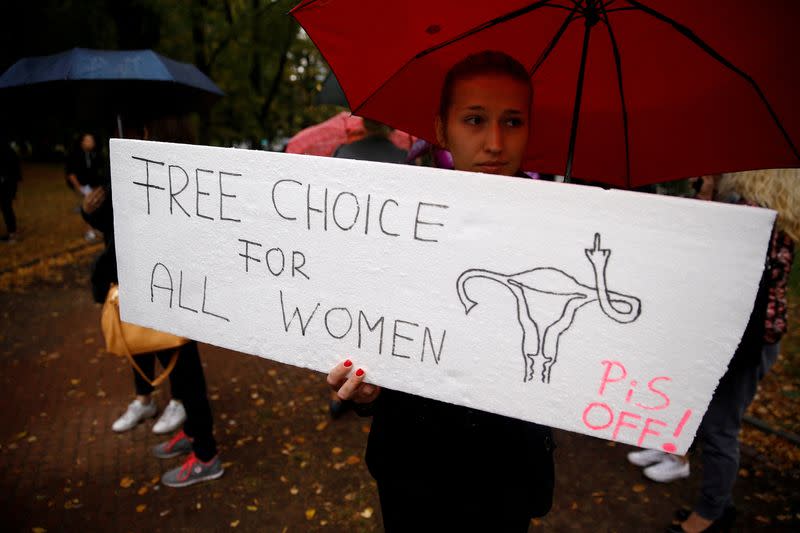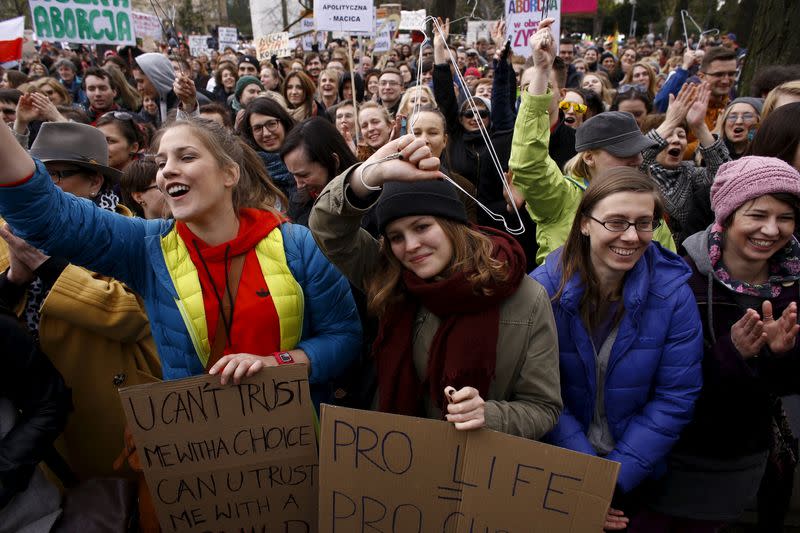Polish abortion verdict breached woman's rights, European court rules
WARSAW (Reuters) - The fact that a Polish court verdict forced a woman to travel abroad to get an abortion due to a foetal anomaly violated her right to private and family life, the European Court of Human Rights ruled on Thursday.
Despite widespread protests, the then nationalist government in 2021 put into effect a constitutional court decision banning terminations of pregnancies with foetal defects, as conservative policies took root in one of Europe's most devout Catholic countries.
Poland's new liberal government has promised to protect women's rights and Prime Minister Donald Tusk vowed to present a bill making abortion legal until 12 weeks, although President Andrzej Duda may veto any such law.
Thursday's case was brought by a woman who became pregnant in 2020 and the foetus was diagnosed with Down's syndrome.
A scheduled hospital abortion had been cancelled when the constitutional court verdict had come into force. Unable to have a termination in Poland, she ultimately had to travel abroad for the procedure.
"Such interference with her rights... had created a situation which had deprived her of proper safeguards against arbitrariness," the court said.
The Court also found that the interference with the applicant's rights had not been lawful because it had not been issued by a body compatible with rule of law requirements, as the constitutional court included judges who had been appointed in a procedure tainted by serious irregularities.
Simultaneously, the Court declared inadmissible a case involving 927 women of child-bearing age who alleged they were potential victims of a violation of their rights as the law now forced them to carry pregnancies to term even in the case of foetal abnormality.
As in a previous case, the court found that they had failed to provide evidence proving that they had been at real risk of being directly affected by the legislative amendments.
Along with Malta, Poland's anti-abortion laws are among the most restrictive in Europe. Pregnancy can be terminated only in cases of a threat to the mother's life or health or in a case of rape, and the number of abortions fell to 161 in 2022 from over 1,000 in 2020.
(Reporting by Anna Wlodarczak-Semczuk; Editing by William Maclean)

 Yahoo News
Yahoo News 

